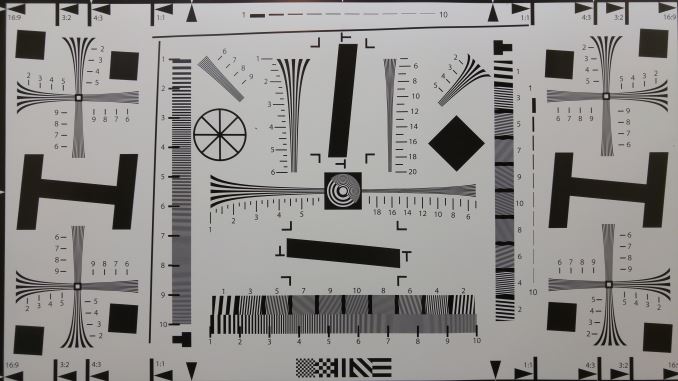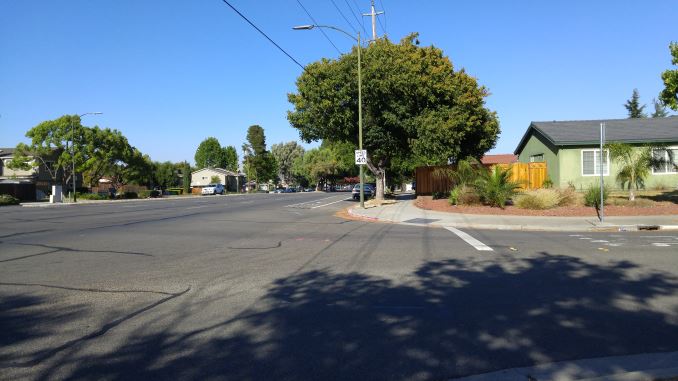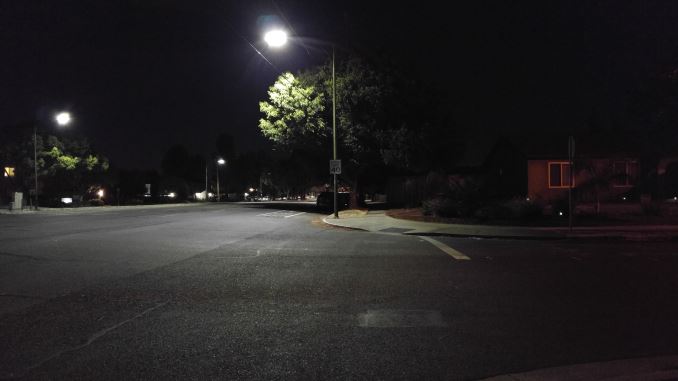The LG G4 Review
by Joshua Ho on July 30, 2015 10:00 AM EST- Posted in
- Smartphones
- Qualcomm
- LG
- Mobile
- Snapdragon 808
- LG G4
Still Image Performance
Now that we’ve been able to discuss the basic specs of the camera and the user experience of taking photos, we can begin to talk about the image quality of the camera system. This is an incredibly complex field to say the least, as there are many parts of the chain that have a significant impact on overall quality. In order to test this, we use relative photo comparisons which allow for some level of objective comparison in terms of optical distortions, MTF, and other factors that influence image quality. I’m still not satisfied with the state of our testing suite here, but for rough comparisons it should serve well.
In our ISO test chart, the G4 effectively has no problem resolving anything on the test chart, but the contrast between lines can get rather low by the time we reach the 20 mark on this graph. However, resolution at the center isn't the only part that matters, but rather resolution at the edges. In that regard it appears that the G4 has some issues with defocus and noise at the edges that is slightly worse than the Galaxy S6, but it's definitely possible that we're just looking at differences in post-processing as the haloing is definitely slightly more obvious on the G4 around all the high-contrast edges in this photo.
Moving past our controlled lighting tests, we use some real-world estimations to try and judge more than pure resolution. In our daytime landscape tests, the LG G4 is roughly equivalent to the Galaxy S6, but textures seem to have visibly lower resolution. Given the even more aggressive sharpening on the LG G4 compared to the GS6, it’s likely that we’re seeing differences in post-processing and possibly differences in optics as well. It’s worth noting here that the OIS has a tendency to drift even in situations that don’t appear to have any hand shake present, so this can also affect the sharpness of photos in daytime.
At any rate, resolution is effectively comparable to the LG G3, which is probably indicative that we’re mostly limited by the optics here, and that decreasing pixel size much further won’t really help with increasing resolution. HDR is pretty much similar in terms of quality to the Galaxy S6, but the use of multiple image combination affects the shot to shot latency as there’s additional processing time compared to the Galaxy S6’s instant HDR which affects the user experience. I should note that RAW output is effectively useless here as well, as there’s basically no lens or sensor profile so the colors of the RAW photo look rather off, in conjunction with vignetting and other distortions that are difficult to correct for.
In low light, the LG G4 is arguably far superior to the Galaxy S6 in terms of quality. Looking at the test images, a number of issues stand out in the Galaxy S6 that are resolved in the LG G4. The first is that the processing avoids artificially increasing exposure well past what the sensor has recorded, so there’s no purple hue in black areas like the sky and the right side of the image. The other significant advantage here is that LG’s noise reduction algorithms are much more balanced, favoring preservation of detail over smoothing out luminance noise. The speed limit sign is significantly more legible, and in general edges remain much sharper on the G4, and textures retain more detail than on the Galaxy S6. Given that detail seems to be a bit worse in daytime, it seems fair to say that LG has simply adopted better post-processing for low light photos, so these comparisons are definitely subject to change as OEMs adjust post-processing with various OTAs.
Overall, I’m actually quite impressed with what LG has done here. The camera UI is easily one of the best I’ve seen in any smartphone, and the camera is definitely much faster than the one on the LG G3. Shot to shot latency isn’t quite fast enough to feel instant, but it’s at least competitive with other devices on the market. Image quality is also competitive with the Galaxy S6 in the day, and noticeably better at night. Combined with the manual controls, I would argue that the LG G4 is a better camera than the Galaxy S6 and even the iPhone 6 Plus, although I would prefer a 4:3 sensor and a stronger focus on reducing optical distortion over chasing wider field of view and wider apertures for future iterations of the device.































84 Comments
View All Comments
Fidelator - Wednesday, August 5, 2015 - link
The 6+ doesn't even come close to either the S6 or the G4, that is some bs right thereMattzerminater - Friday, August 7, 2015 - link
Dude! Aspect ratio for the camera can be changed between 16:9, 4:3 and 1:1 in the settings. Turning off the quickshot feature when double tapping the volume down button can also be turned off in the phone settings.cdm283813 - Sunday, August 9, 2015 - link
After owning a Note 2, 3 and 4 I really wanted to try something different (and smaller) for 2015. So I waited for the G4 especially after seeing the S6 but I ultimately went to the S6. That initial pick up and feel moment of the G4 had me thinking about the Note 2 which for me was a step backwards. It felt too light and cheap; things that I defended Note 2 and 3 for having. Plus 5.5" is still a phablet in my book no matter how much they strink the body. And I'm just not a fan of LG's UI look. So far the theme engine in the latest touchwiz is freaking awesome. It really helps when you just need a fresh coat of paint to liven up the phone again.It's only been about 4 weeks since owning the S6 and I'm still happy. If I really had to change anything it would be a slightly larger battery. But at the same time this phone charges very quick. I have 3 quick chargers (1 car and 2 wall) and so far I haven't run out of battery. So far the S6 has been my best phone to date.
In saying that I can't wait for the 2015 Moto pure review. Like to see how much compromise when into a phone costing $200 to $300 cheaper than a big boy flagship. Ater reading this review I have a new respect for the SD 808. But with the SD 820 coming out it may be short lived
EagleX - Tuesday, October 13, 2015 - link
How did you get 6.6 hours in pcmark battery work test? I got 5.51, exactly as the average appearing in Pcmark's website. Is it just me?